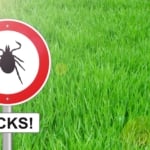Prevent Heat Exhaustion and Stroke
Everything you need to know to protect yourself and your family from heat exhaustion and heat stroke.
When the heat index soars into the triple digits, those working or playing outdoors need to take precautions against heat exhaustion and heat stroke. Young children and the elderly are especially vulnerable to extreme heat. To prevent heat exhaustion and heat stroke practice the following:
- Drink water hourly to keep the body hydrated.
- Working in the early morning and quitting in the early afternoon is really advisable for those laboring in extremely hot weather.
- If you are involved in vigorous sports activities such as running a marathon or playing football, drink one cup of water or a sports drink every 20 to 30 minutes.
Signs of Heat Exhaustion
Individuals who perspire a lot when working outside in severe hot weather may experience cramping in their legs, arms, or stomach. If cramping occurs while laboring in the heat, it is most likely a sign of heat exhaustion. Heat cramps occur due to a lack of salt in the body. Other signs of heat exhaustion are paleness of skin, weakness, feeling faint, and even nausea. To treat heat exhaustion or heat cramps, follow these steps:
- The individual should sit or lie down in a cool or shaded place and gently massage the cramping areas.
Individuals experiencing weakness or nausea as well as leg cramps should lie down with their feet raised while someone rubs their legs. - Remove shoes and socks and loosen clothing to help lower the body temperature.
- Apply a cold compress to the face to help prevent fainting and to cool the body.
- Stir a teaspoon of salt into a liter of water and drink it. A sports beverage that contains sodium and potassium will also help. Repeat this once every hour until the cramps stop.
Signs of Heat Stroke
Heat stroke is much less common than heat exhaustion, but much more serious. How heat stroke differs is that the skin becomes red, hot, and dry, with no sign of perspiration. A high fever is present and the person will either feel very ill or become unconscious. In this situation, the body temperature must be lowered immediately. Move the heat stroke victim to shade, soak the person with ice water if possible, and fan the person until help arrives or the fever drops. Professional medical help is necessary in cases of heat stroke and should be sought immediately.

Deborah Tukua
Deborah Tukua is a natural living, healthy lifestyle writer and author of 7 non-fiction books, including Pearls of Garden Wisdom: Time-Saving Tips and Techniques from a Country Home, Pearls of Country Wisdom: Hints from a Small Town on Keeping Garden and Home, and Naturally Sweet Blender Treats. Tukua has been a writer for the Farmers' Almanac since 2004.





